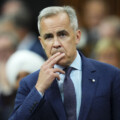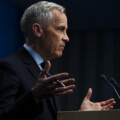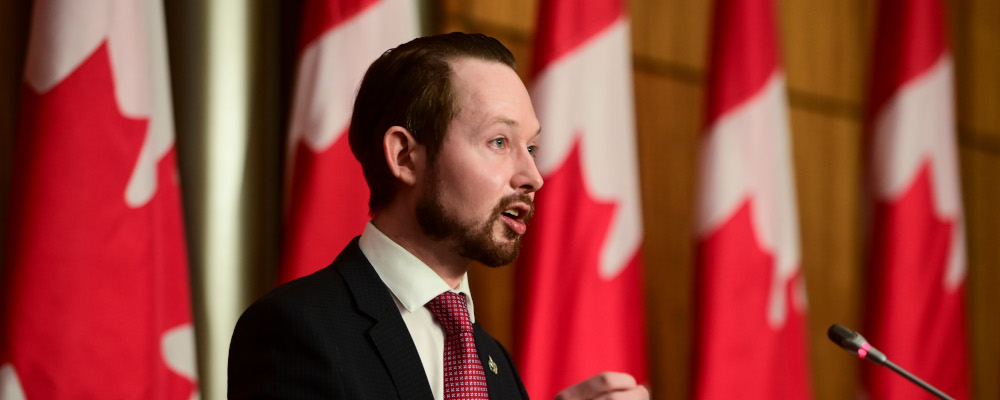To what extent should our elected representatives be free to stand on conscience? Should political parties curtail this freedom? When is it legitimate to bar certain beliefs from a legislature?
Matt Malone takes up this topic in these pages. He argues that, at least on certain issues, freedom of conscience should not be granted to lawmakers by the political parties to which they belong. In his opinion, certain views on certain issues should not be expressed in the halls of power.
Malone focuses on the Conservative Party of Canada, which allows its MPs to vote freely on “issues of moral conscience”.Conservative Party of Canada Policy Declaration https://cpcassets.conservative.ca/wp-content/uploads/2021/05/04094452/d1effca7a5c8818.pdf In arguing against freedom of conscience for lawmakers on issues such as same-sex marriage and abortion, Malone appeals primarily to majoritarianism and public opinion. As most Canadians have coalesced in their thinking on these issues, he suggests that politicians who hold contrary opinions should not be permitted by their party to vote in accordance with those opinions.
Relying on majoritarianism to mute conscience in legislatures may be convenient and straightforward, but it is also problematic. For starters, it is not a one-way street. There was a time when the majority viewpoint on issues such as same-sex marriage or euthanasia was the opposite of what it is today. For Malone’s argument to hold water, a politician who favoured the legal recognition of same-sex marriage or the decriminalization of euthanasia decades ago would not have been able to advance that viewpoint because of where most Canadians stood on these issues at the time.
History is replete with examples of societies exhibiting confidence—and, as it turns out, overconfidence—in the righteousness of laws that have, owing in part to the conscientious advocacy of politicians, been discredited and eventually abandoned. History has therefore taught us time and again that we should refrain from sidelining conscience in the realm of lawmaking and public policy. Human beings are fallible and for that reason alone there is almost always value in allowing citizens and their elected representatives to express viewpoints that diverge from the prevailing orthodoxies of the moment.
This fallibility may be manifesting itself right now on one of the issues that Malone mentions. He notes that most Canadians agree with the ruling of the Supreme Court in 2015 that opened the door to euthanasia.Supreme Court of Canada ruling https://www.justice.gc.ca/eng/cj-jp/ad-am/scc-csc.html Since that ruling, the eligibility criteria for medical assistance in dying have steadily expanded.Medical assistance in dying https://www.canada.ca/en/health-canada/services/medical-assistance-dying.html Eligibility for individuals suffering solely from mental illness is on the horizon. A growing number of citizens and politicians have expressed concerns over where we are headed on this issue. The idea of barring lawmakers from speaking and voting against euthanasia due to where the majority stands on the issue, if that is what Malone is calling for, should be rejected.
Majority rule, if overemphasized, also impoverishes the functioning of legislatures and the vitality of our democracy. Majorities matter of course in terms of which laws are ultimately enacted, but the debates that precede the vote on proposed legislation ought to be as robust and nuanced as possible. Legislatures decide how a society will be governed and the rules that will bind citizens. In that light, democratic legislatures are venues in which freedom of conscience—that is, the freedom to speak and vote in accordance with what you believe is in the best interests of society—should be broad. Legislatures are not the place to effectively censor certain viewpoints on account of their unpopularity.
A major flaw in the discourse on legislatures is the dichotomy between a small set of “conscience issues” on the one hand and most issues that are said to not implicate conscience on the other. In my view, legislating is always a matter of conscience. With every piece of proposed legislation, no matter how mundane the substance might be, the basic question for an elected official is whether the legislation is normatively in the best interests of the society that will be governed by it.
Understood this way, the legislative role is inherently entangled with conscience. Edmund Burke, upon his election to the U.K. Parliament in 1774, delivered a speech in which he advocated for this vision of representation.Edmund Burke, Speech to the Electors of Bristol https://press-pubs.uchicago.edu/founders/documents/v1ch13s7.html He called for a careful balance between loyalty to one’s constituents, conscience, and country. While a legislator must generally prefer the interests of his constituents to his own, the legislator must neither sacrifice his conscience and judgment nor give effect to an opinion from constituents that is “evidently opposite to the real good of the rest” of the polity.
I worry about steps that, if taken, would render MPs more robotic than they are already. It is exceedingly rare for Canadian politicians to deviate from the party line when voting on proposed legislation or to publicly criticize party leadership. This sort of conduct by politicians is more common in jurisdictions where party discipline is less stringent. Some commentators in Canada have noted, for example, that Boris Johnson’s ouster as prime minister of the United Kingdom, an outcome generated by members of his own party, is unthinkable in Canada—even though, by any objective measure, the gravity of certain of Justin Trudeau’s mistakes equals if not exceeds those of Johnson.
I do not, however, mean to diminish the valuable role played by political parties in a democracy. Political parties have proven effective in mobilizing citizens toward common ends, and they often enrich our political discourse. From the standpoint of efficient governance, political parties have obvious benefits.
But it would be injurious to democracy to altogether exclude conscience from the legislative process. The costs to democratic health in barring freedom of conscience outweigh the benefits gained by taking this step. Further increasing the already tremendous influence of political parties at the expense of allowing lawmakers to act in accordance with what they believe is in the best interests of the polity that the legislative assembly serves would render that assembly and the polity markedly less democratic.
As for the two Conservative MPs that Malone cites as holding beliefs that do not merit accommodation in Parliament, he does not account for the fact that these MPs have been elected and re-elected by their constituents (as well as nominated and renominated by their party to stand for election). This reality suggests that at least some Canadians share the views of these MPs that Malone considers problematic. At the same time, these MPs may eventually become unelectable if their views become sufficiently unpalatable to enough voters. The role of the ballot box deserves greater attention in this discussion. On election day, these MPs will have to defend their views and the positions they have taken.
In his article, Malone identifies a major deficiency in Canada’s legislative ecosystem. Conscience should be front and centre in the work of lawmakers, yet it is usually deemed foreign to their role. We must not reduce what little space exists for conscientious representation. Nor should we maintain the status quo.
We should, I believe, create more space for representation of this sort. Parties should continue to convey how they expect their members will vote on most issues, and I suspect the members will almost always vote in accordance with these expectations. But the door should not be shut on the freedom of members to vote otherwise if they believe it is the right thing to do. The result may not be as disciplined a form of party politics as we have come to know in Canada, but I suspect it will be far more democratic.
Recommended for You

‘Another round of trying to pull capital from Canada’: The Roundtable on Trump’s latest tariff salvo

‘We knew something was coming’: Joseph Steinberg on how Trump is ramping up his latest tariff threats against Canada

Rudyard Griffiths and Sean Speer: Canada’s high-stakes standoff with Trump

Carney’s next budget will be built on a shaky fiscal foundation




